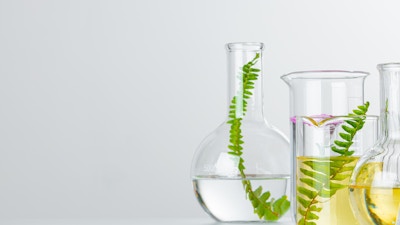How harnessing the power of microbes could save us all
By Lindsay Brownell
As humans, we like to think that we are the smartest animals on planet Earth. After all, no other species has invented smartphones, heat pumps, or jet engines. But for all our innovations, we have also created problems on a global scale.
Take plastic, for example.

Humans invented plastic scarcely more than a century ago, but we now produce more than 350 million metric tons of plastic waste per year. That’s the equivalent of 10 million fully loaded garbage trucks. While we have acknowledged that plastic pollution is a problem we need to solve, so far, humans have failed to find a viable solution.
Microbes, on the other hand, have developed a very simple one in the same timeframe: just eat it.
Scientists have identified about 400 species of fungi and bacteria worldwide that have developed the ability to eat plastic. 60% of the plastic-digesting enzymes that these microbes have developed belong to no previously known class in nature, indicating that they are newly evolved.
Despite developing the capacity to take advantage of this new and plentiful food source, microbes aren’t very good at eating plastic yet – studies estimate that they can only digest about 1% of the plastic they encounter every year.
Fortunately, we don’t have to wait for Nature to speed up this process: we can accelerate it with synthetic biology.
Synthetic biology – the engineering of living organisms – is a cornerstone of the Wyss Institute’s commitment to solving real-world problems in sustainability, from plastic pollution to textile production to carbon capture. Our world-class scientists and engineers are building the tools needed to rapidly design, test, and iterate microbes with new-to-nature functions, and using those tools to create biology-based solutions to the world’s most pressing problems.
These new technologies are then shepherded into the Wyss’ innovation funnel, our unique model of developing and de-risking promising ideas to ensure that when they get to market, they are ready to make the biggest possible positive impact.

This model has a track record of launching successful companies. Circe Bioscience is engineering bacteria that can eat greenhouse gases and use their molecular building blocks to produce food-grade fats to decarbonize food production. Kula Bio super-charges microbes to provide nitrogen directly to crops, reducing farmers’ reliance on harmful and expensive synthetic fertilizers. And, bringing things full circle, a startup called Breaking launched last month is evolving microbes that can eat plastic waste to address the global pollution problem.
We’re also exploring new uses for microbes that can help solve the sustainability crisis. Wyss researchers are using them to create the next generation of meat-free proteins, extract rare-earth elements from the ground more sustainably, sense and degrade toxins in the environment, and increase the “weathering” process that sequesters carbon into the oceans.
Of course, experimenting with living creatures, even those without true brains, creates ethical questions and issues. The Wyss Institute’s in-house ethicist and philosopher, Jeantine Lunshof, holds regular office hours with our researchers to talk about their experiments and ensure that they have thought about and planned to mitigate potential risks.
While we’re incredibly excited about the sustainability work going on within our walls, we know that we can’t do it alone. We work closely with the Syn Bio Hive at Harvard Medical School, co-founded by Wyss Faculty members Pam Silver and Mike Springer, where scientists with new and exciting ideas about how to use biology to solve sustainability problems form interdisciplinary teams to test those ideas in the lab. We have also partnered with Collab Fund to drive the development of technologies that can make materials more sustainable.
And we’re just getting started.
Reach out to Emily Stoler if you’re interested in getting involved with our sustainability projects.
